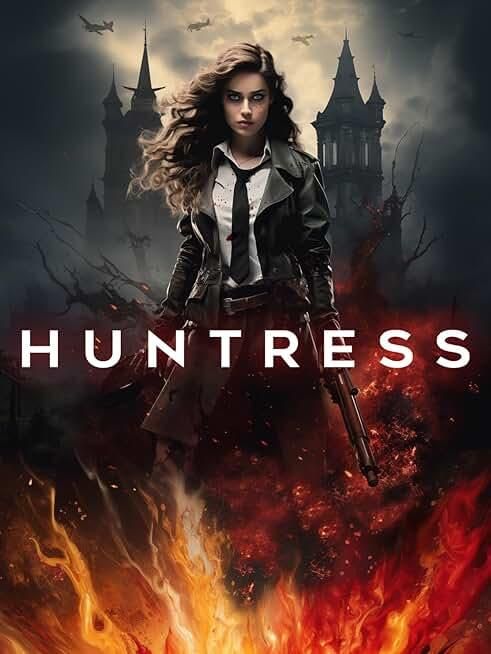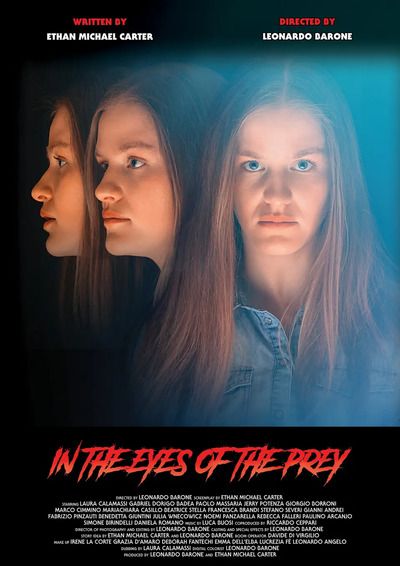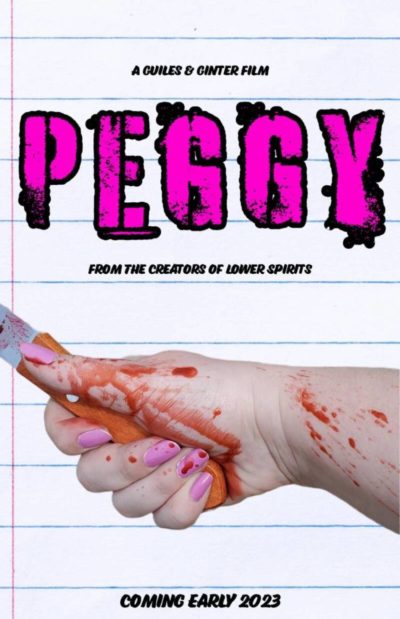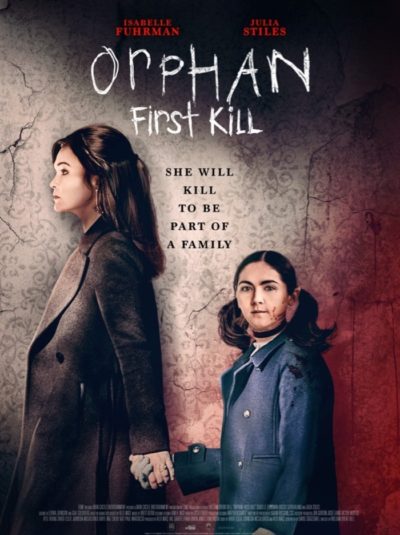★★★★
“Remy is feeling a little cross…”
 Sheesh, they’ll adapt anything into a movie these days. Hey, I guess if Clue, Battleship and Ouija can become films, why not Cand… Yeah, to be clear I am joking. Do not, for the love of God, mistake this as about the quest for King Kandy. Though I am amused the Wikipedia page for the game specifically says, not to be confused with this film. For it’s actually about truck-stop hookers being stalked by a murderous psychopath. Which could, I admit, probably be adapted into a pretty decent board-game. The central character is Remy (Luccardi), an escapee from a religious cult, who finds herself stranded at the truck-stop, and befriended by Sadie (Quartin) and the other “lot lizards” there.
Sheesh, they’ll adapt anything into a movie these days. Hey, I guess if Clue, Battleship and Ouija can become films, why not Cand… Yeah, to be clear I am joking. Do not, for the love of God, mistake this as about the quest for King Kandy. Though I am amused the Wikipedia page for the game specifically says, not to be confused with this film. For it’s actually about truck-stop hookers being stalked by a murderous psychopath. Which could, I admit, probably be adapted into a pretty decent board-game. The central character is Remy (Luccardi), an escapee from a religious cult, who finds herself stranded at the truck-stop, and befriended by Sadie (Quartin) and the other “lot lizards” there.
 Remy eventually becomes part of the “team,” also including gay-for-pay Levi (Campbell), who service the truckers who pass through the high-altitude location – as well as local sheriff Rex (Baldwin). It’s a tough life, with violence a risk they face on an everyday basis, such as when a trucker shows up in a toilet stall with his throat slit, or someone decides Levi is a bit of rough. However, things escalate considerably, because the problem is: you can take the girl out of the cult, but you can’t take the cult out of the girl. After getting a visit from another member, Remy decides, as she puts it, “We must cleanse the world before we can cleanse ourselves of it.”
Remy eventually becomes part of the “team,” also including gay-for-pay Levi (Campbell), who service the truckers who pass through the high-altitude location – as well as local sheriff Rex (Baldwin). It’s a tough life, with violence a risk they face on an everyday basis, such as when a trucker shows up in a toilet stall with his throat slit, or someone decides Levi is a bit of rough. However, things escalate considerably, because the problem is: you can take the girl out of the cult, but you can’t take the cult out of the girl. After getting a visit from another member, Remy decides, as she puts it, “We must cleanse the world before we can cleanse ourselves of it.”
No prizes for guessing what that means, as if the poster doesn’t make it abundantly clear. Swab manages to do a decent job of straddling the exploitational and the thoughtful. This certainly doesn’t stint on the nudity, from the first scene which sees Sadie riding her client like she was trying to start a fire, through one of the girls taunting the cult leader by opening her legs in front of him. It’s pretty damn gory as well. But it’s not just mindless sex and violence. For instance, it would be easy for Swab to paint the victims as… well, just victims, but they’re depicted as there, and doing this work, of their own choice and free will.
I did feel that the shift from religious advocate to prostitute to spree killer for Remy was a bit abrupt. A little more time for the transition might have helped, or perhaps making her more clearly dedicated to her lethal cause from the get-go. Yet the way things turn out, perhaps indicate that was the case all along. Credit to Swab for not pulling punches either, with things continuing to escalate and the body count continuing to mount until, literally, the final shot. Hardly anyone here gets out alive, and I was left wondering if the religious fundamentalists had won. There’s a lot of films while look to recreate the bygone grindhouse era. This seeks to look forward instead, and is likely all the better for it.
Dir: John Swab
Star: Olivia Luccardi, Sam Quartin, Owen Campbell, William Baldwin
[This review previously appeared on Film Blitz]





 The Texas Chainsaw Massacre was fairly notorious in Britain in the eighties and nineties, being famously banned on video. Naturally, this meant I had to see it, and… I was initially underwhelmed. However, I’ve gradually come to appreciate its raw intensity over the years. If I ever doubted its merits, watching this largely shameless knockoff should act as a reminder. Because it shows how flat and uninteresting the premise can be, when executed poorly. This relocate things from seventies Texas to Germany in the last days of World War II. A medevac team is trying to get injured and grumpy officer, Colonel Franklin (Christian) to a hospital before his leg falls off from sepsis.
The Texas Chainsaw Massacre was fairly notorious in Britain in the eighties and nineties, being famously banned on video. Naturally, this meant I had to see it, and… I was initially underwhelmed. However, I’ve gradually come to appreciate its raw intensity over the years. If I ever doubted its merits, watching this largely shameless knockoff should act as a reminder. Because it shows how flat and uninteresting the premise can be, when executed poorly. This relocate things from seventies Texas to Germany in the last days of World War II. A medevac team is trying to get injured and grumpy officer, Colonel Franklin (Christian) to a hospital before his leg falls off from sepsis. This is now the third film with the same title to be reviewed on the site: no
This is now the third film with the same title to be reviewed on the site: no  New rule. If ever I become an evil, kidnapping overlord, I shall be sure not to leave potentially lethal power-tools left lying easily accessible, around the place where the abductee is being kept. This is just one of the many mistakes made by the criminals here, in what could be an instructional guide on how NOT to execute a kidnapping. Admittedly, they weren’t aware that their victim suffers from multiple personality disorder. The alternate version is more than happy to wield the aforementioned power-tool – specifically, a nail gun – with extreme prejudice. It helps that these grown men and hardened criminals make it remarkably easy, for a 110-lb woman to overpower them in various ways.
New rule. If ever I become an evil, kidnapping overlord, I shall be sure not to leave potentially lethal power-tools left lying easily accessible, around the place where the abductee is being kept. This is just one of the many mistakes made by the criminals here, in what could be an instructional guide on how NOT to execute a kidnapping. Admittedly, they weren’t aware that their victim suffers from multiple personality disorder. The alternate version is more than happy to wield the aforementioned power-tool – specifically, a nail gun – with extreme prejudice. It helps that these grown men and hardened criminals make it remarkably easy, for a 110-lb woman to overpower them in various ways. To be one hundred percent clear, the best thing about this is the rather arresting poster. A far better film than what we have here, would struggle to live up to it. Instead, we have a classic example of vanity cinema, where one man decides to write, direct and play a major part in his own movie. The over-ambition here is palpable, to an often accidentally amusing degree. Perhaps most obviously, a pair of “car chases” – and I use the quotes deliberately – which unfold at a stately 15-20 mph, involving a muscle car on which the production clearly could not afford a single scratch on the paint. They’d have been better off not bothering.
To be one hundred percent clear, the best thing about this is the rather arresting poster. A far better film than what we have here, would struggle to live up to it. Instead, we have a classic example of vanity cinema, where one man decides to write, direct and play a major part in his own movie. The over-ambition here is palpable, to an often accidentally amusing degree. Perhaps most obviously, a pair of “car chases” – and I use the quotes deliberately – which unfold at a stately 15-20 mph, involving a muscle car on which the production clearly could not afford a single scratch on the paint. They’d have been better off not bothering.  An early contender for widest gap between synopsis and reality in 2024. On the one hand, we have “After years of torment, Peggy finally gets revenge on all those who wronged her in the past.” On the other? A dumb, microbudget not-a-horror, not anything really. It’s probably most notable for the unexpected appearance of Tom Lehrer on the soundtrack. I guess the basic concept is there. Peggy (Van Dorn) is almost thirty, but still lives at home with her doting dad (Williams). Her main hobby is abducting and torturing those who “wronged her” – though quite what they did to deserve such punishment is never made clear, which makes it kinda hard to feel empathy for her.
An early contender for widest gap between synopsis and reality in 2024. On the one hand, we have “After years of torment, Peggy finally gets revenge on all those who wronged her in the past.” On the other? A dumb, microbudget not-a-horror, not anything really. It’s probably most notable for the unexpected appearance of Tom Lehrer on the soundtrack. I guess the basic concept is there. Peggy (Van Dorn) is almost thirty, but still lives at home with her doting dad (Williams). Her main hobby is abducting and torturing those who “wronged her” – though quite what they did to deserve such punishment is never made clear, which makes it kinda hard to feel empathy for her. RIP James Caan. I mention his passing, because by coincidence I watched this the same day, and there are a couple of nods to Misery, one of Caan’s most famous works. There’s a character called Mrs. Wilkes, and we also get an explicitly acknowledged re-enactment of
RIP James Caan. I mention his passing, because by coincidence I watched this the same day, and there are a couple of nods to Misery, one of Caan’s most famous works. There’s a character called Mrs. Wilkes, and we also get an explicitly acknowledged re-enactment of  When I see “Reader discretion is advised,” on an Amazon page, I tend to take it with a grain of salt. I’ve been enjoying media at the outer edges for longer than most readers here have been alive, and so am not easily shocked, disturbed or offended, to put it mildly. I’m ussure this quite managed to do any of those, but I will definitely say this: yes, reader discretion
When I see “Reader discretion is advised,” on an Amazon page, I tend to take it with a grain of salt. I’ve been enjoying media at the outer edges for longer than most readers here have been alive, and so am not easily shocked, disturbed or offended, to put it mildly. I’m ussure this quite managed to do any of those, but I will definitely say this: yes, reader discretion  Mildred Moyer (Chamberlain) has a problem, and it’s as plain as the nose on her face. Actually, it
Mildred Moyer (Chamberlain) has a problem, and it’s as plain as the nose on her face. Actually, it  I’ve not seen the original Orphan. I suspect this does not matter very much, since what we have here is a prequel. I will admit to having been lured in by the barking mad central idea. It does justice to the lunacy, though can’t sustain itself entirely, and at least somewhat collapses under its own weight. We begin in Estonia, where Leena (Fuhrman) is a very, very angry 31-year-old. Not without justification, being trapped in a 9-year-old’s body due to a hormonal condition. Previous violence has got her committed to a secure facility, but Leena breaks out and decides to adopt the identity of Esther Albright, an American child who went missing years previously.
I’ve not seen the original Orphan. I suspect this does not matter very much, since what we have here is a prequel. I will admit to having been lured in by the barking mad central idea. It does justice to the lunacy, though can’t sustain itself entirely, and at least somewhat collapses under its own weight. We begin in Estonia, where Leena (Fuhrman) is a very, very angry 31-year-old. Not without justification, being trapped in a 9-year-old’s body due to a hormonal condition. Previous violence has got her committed to a secure facility, but Leena breaks out and decides to adopt the identity of Esther Albright, an American child who went missing years previously.